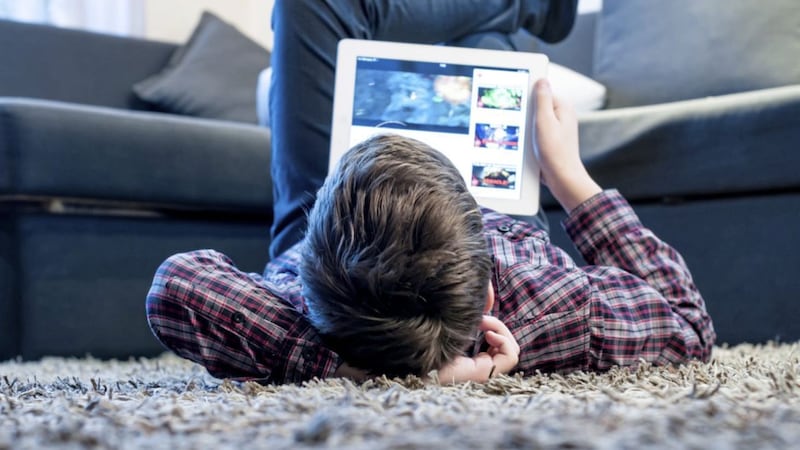EVERYONE in our house – from 46 years old to seven – has a computer or console of some description. Two thirds of us have mobile phones and iPads. We are definitely a digitally connected family.
Sometimes one of my sons will text me from his room upstairs to ask me something which in days of olde he might have just opened his bedroom door and shouted.
My teenagers spend most of their time online, conversing with real-life friends in virtual worlds and, as someone who hung around on real streets, speaking to real people, outside in the real world, this makes me very uneasy.
My kids tear themselves away from the consoles to go to their various sporting clubs, and perhaps out with their friends at the weekends. But otherwise they are hooked up to their computers like cyborgs and I know many other teenagers are the same.
I nag them constantly to go out and get fresh air, get some exercise, get some daylight to save them becoming vampires, to call around to their friend’s houses, but they insist that all their friends are online and that’s where they’d rather be.
Although they spend all day in school and surrounded by family I fear that by spending so much time online in virtual worlds they will not fully develop the proper communication skills needed to function in the real world. But then, perhaps our world is changing.
Some say spending hours on digital platforms is detrimental to the mental and physical well being of our young people. Others say embracing technology has huge educational and developmental benefits to young minds that outweigh any negative aspects.
I console myself with the fact by giving them access to the technology they will be armed with the information and skills – and indeed be savvy enough – to survive and thrive in what is fast becoming a digital world.
And that is also the view by sociologist Professor Eilis Cashmore of Aston University, whose new book Screen Society tells us that banning kids from using the internet at home is "tantamount to child abuse".
The book is a collaboration between researchers from Teesside University, Aston University and the University of South Australia who looked at the habits of 2,000 internet users.
“Screen Society’s conclusions are based on an original research project conducted by scholars in the UK and Australia,” the book states. “The researchers designed their own research platform and elicited the thoughts and opinions of nearly 2,000 participants, to draw together insights of today’s society as seen by users of smartphones, tablets and computers – what the authors call Screenagers.
“The book issues challenges to accepted wisdom on many of the so-called problems associated with our persistent use of screen devices, including screen addiction, trolling, gaming and gambling.”
Among other findings the author declares that the risks of being online are grossly exaggerated and that it is in fact "tantamount to child abuse" not to let your child have access to the internet. Rather than protect them from the dangers of online, he says it could impact on their sociological development, stop them from communicating, learning about the world and exposes them to ridicule from their peers.
His book argues that today’s kids are growing up in a world dominated by technology and that to deprive them of the access to technology would put them as a great disadvantage.
I agree to an extent. Kids should be technology-savvy. They need to be, for that is the future and if they are not familiar with it they will be set adrift in an increasingly digital world.
Yet, there is still a case for everything in moderation. Increased screen time – particularly on often times toxic social media platforms – can lead to depression and isolation. And there is still, no matter what your teenager might think, much to be said for good old human contact and face-to-face conversations.








